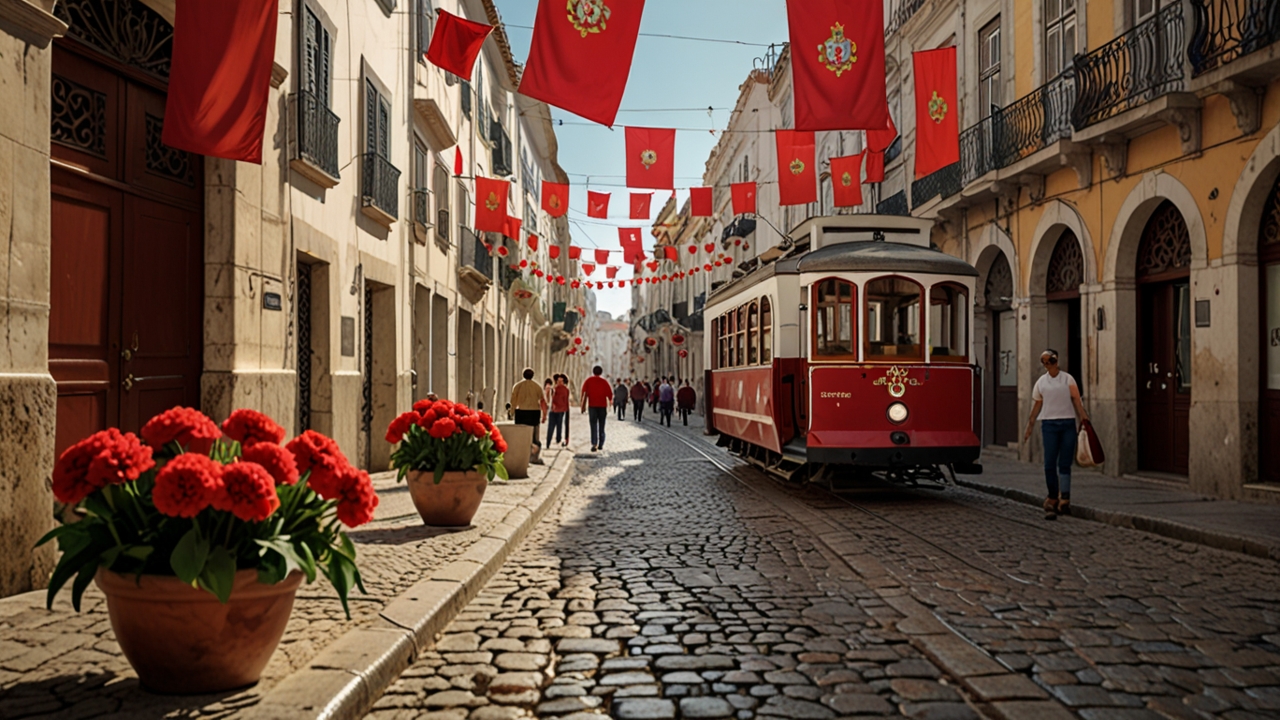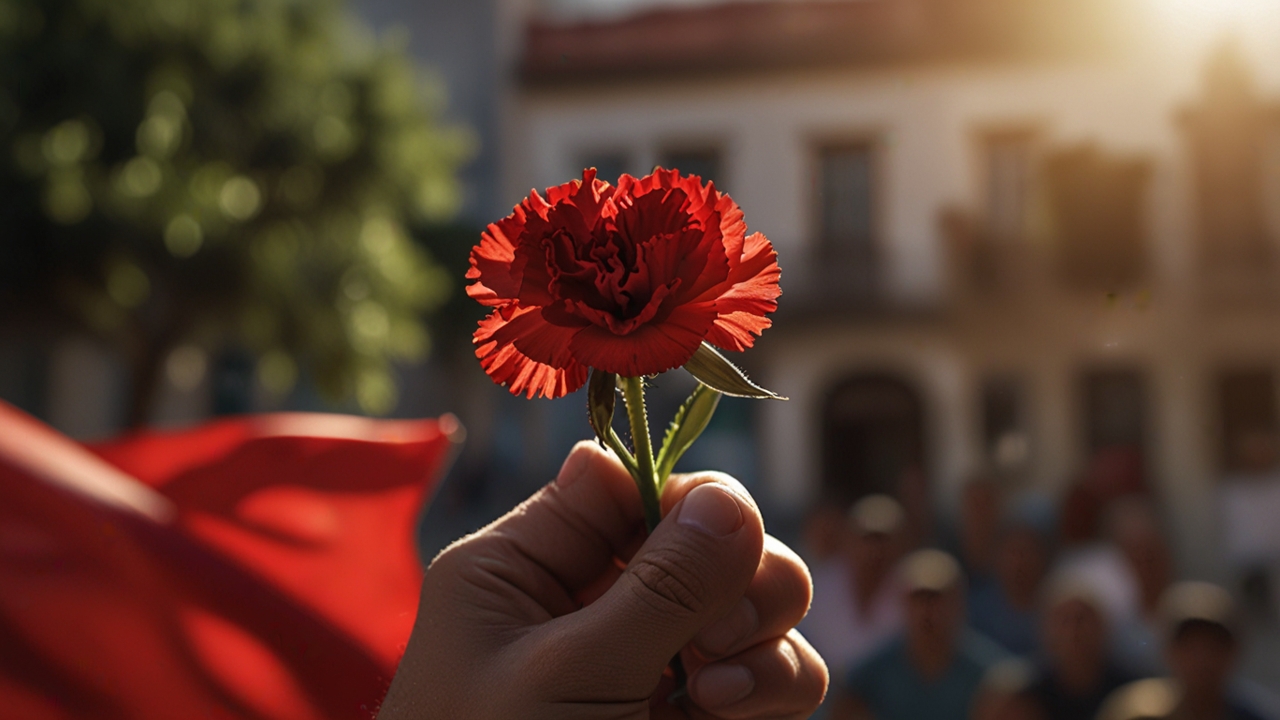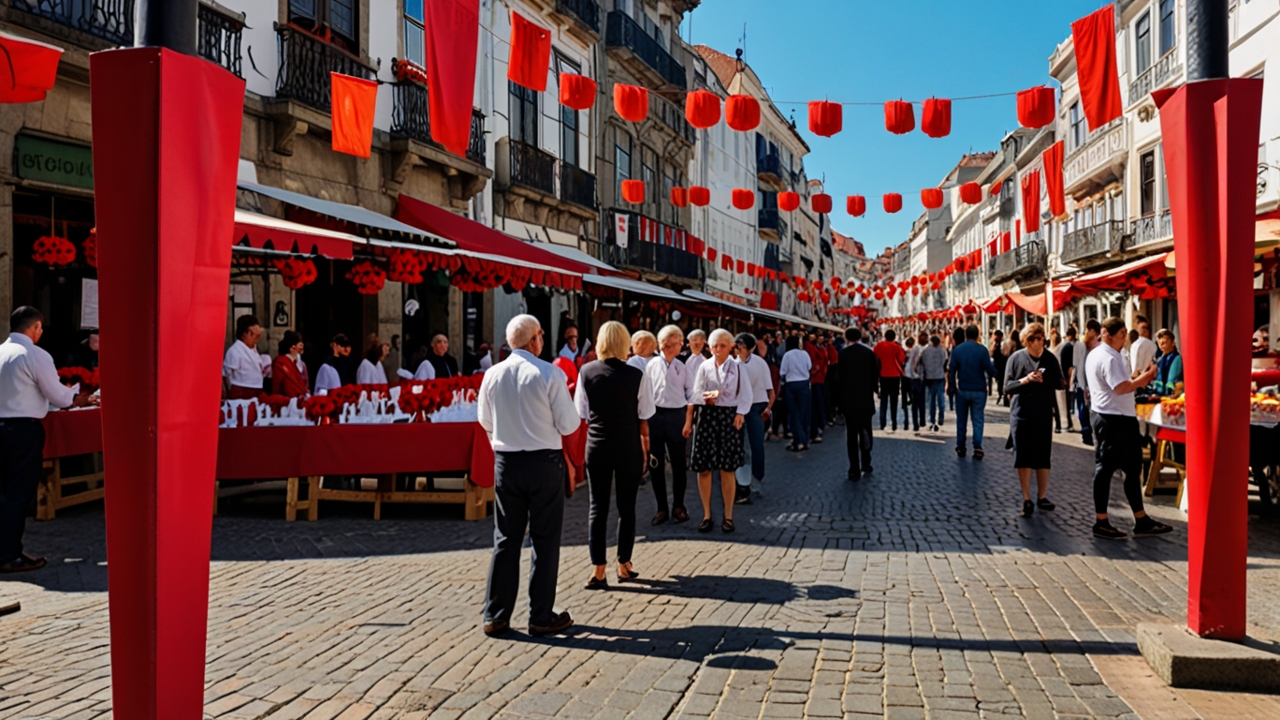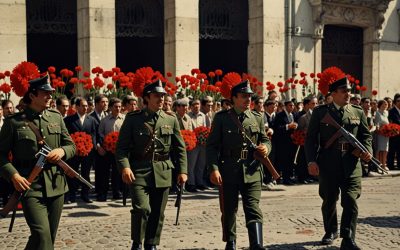Red Carnations and Revolutions: Love and Freedom in Portugal


The story of Red Carnation Day in Portugal is one of those rare moments in history where the symbolism is as striking as the event itself. It is a day when a flower—humble, vibrant, and full of meaning—came to represent a nation’s fight for dignity, unity, and a peaceful future. Known locally as the Revolução dos Cravos (Carnation Revolution), the event took place on April 25, 1974, and marked the end of the Estado Novo dictatorship, a regime that had controlled the country for nearly five decades. Unlike other revolutions that have left behind scenes of destruction and deep scars, Portugal’s transformation was almost entirely bloodless, with fewer than five casualties recorded. What made this revolution stand out was not only its non-violent nature but also the profound connection between ordinary citizens and the soldiers who carried out the coup. In an era when political change was often accompanied by chaos and fear, Portugal’s revolution became a global example of how determination, solidarity, and a shared vision of a better future could reshape a nation without descending into brutality. The red carnation, placed gently into the barrels of rifles and worn proudly on soldiers’ uniforms, became the emblem of that spirit—representing both love for the homeland and the courage to demand freedom without resorting to violence. Today, decades later, the annual celebration of Red Carnation Day remains one of the most important and heartfelt national holidays in Portugal, not only as a remembrance of political liberation but also as a celebration of human compassion and resilience.
The Historical Roots of Red Carnation Day

The roots of Red Carnation Day lie in the deep political and social unrest that had been brewing in Portugal for decades under the Estado Novo regime. This authoritarian government, established by António de Oliveira Salazar in 1933 and later maintained by his successor Marcelo Caetano, was marked by censorship, political repression, economic stagnation, and a stubborn colonial policy that kept Portugal locked in expensive wars in Africa. By the early 1970s, discontent was growing rapidly among both the population and the military, especially younger officers who were weary of the endless colonial wars in Angola, Mozambique, and Guinea-Bissau. The turning point came when the Armed Forces Movement (Movimento das Forças Armadas, MFA) began to organize a carefully planned military coup with the intention of restoring democracy. On the morning of April 25, 1974, troops moved into Lisbon, seizing strategic points such as radio stations, airports, and government buildings. Remarkably, the operation unfolded without major violence. As the soldiers advanced, citizens began to pour into the streets, not in fear, but in celebration, offering food, hugs, and—most memorably—red carnations. The story goes that a Lisbon restaurant worker named Celeste Caeiro, who had been given carnations to decorate for a cancelled celebration, decided instead to distribute them to the soldiers. This spontaneous act resonated instantly, with troops placing the flowers into their rifle barrels and onto their uniforms, transforming a tense military operation into a moment of joy and symbolic power. This is why April 25th is remembered not simply as the day of a political coup, but as the birth of a new democratic Portugal.
Symbolism of the Red Carnation

The red carnation is more than just a decorative bloom in Portuguese culture—it is a living symbol that embodies the dual concepts of love and freedom. Its rich crimson color has long been associated with passion, admiration, and respect, which made it a fitting emblem for a movement that sought to restore dignity to an entire nation. In the context of the revolution, the red carnation’s color also evoked the idea of sacrifice—an acknowledgment of the lives lost under the dictatorship and in colonial wars, but also a hopeful reminder that this particular revolution was different because the “blood” it symbolized was largely avoided. The soft, delicate petals of the carnation contrasted strikingly with the cold steel of military rifles, sending a powerful visual message: weapons could be tools of liberation rather than destruction. Over time, the carnation’s meaning has deepened to reflect not only Portugal’s own struggle but also a broader philosophy of peaceful resistance. In many ways, it encapsulates the Portuguese ability to find beauty, poetry, and humanity even in the midst of political upheaval. Today, wearing a red carnation on April 25th is a quiet yet profound act of remembrance—a way for both older and younger generations to connect to a pivotal moment in their country’s history. Whether pinned to a jacket, placed in a vase, or handed to a stranger in the street, the red carnation carries with it a message that is as relevant today as it was in 1974: true change must be rooted in compassion and unity.
Celebrations in Modern Portugal

In present-day Portugal, April 25th is not merely a historical commemoration but a living, breathing celebration that fills cities, towns, and villages with music, color, and pride. From early morning, public squares are decorated with banners and flags, and street vendors sell fresh red carnations to passersby. In Lisbon, crowds gather at the Avenida da Liberdade, where official ceremonies are held, often featuring speeches by political leaders, war veterans, and activists who lived through the revolution. The day is also marked by cultural performances, including concerts, poetry readings, and theatrical reenactments that bring the events of 1974 to life for younger audiences. Schools and universities take part in educational programs, ensuring that the story of the Carnation Revolution is passed on to the next generation. A particularly moving moment comes when the song Grândola, Vila Morena—the anthem of the revolution—is played and sung by the crowds, its lyrics evoking unity and fraternity. Families stroll through the streets wearing carnations pinned to their clothing, while children are taught to place flowers in public monuments as a sign of respect. Beyond the capital, towns across Portugal hold their own parades and community events, creating a nationwide atmosphere that blends joy and solemnity. For tourists, the celebrations offer a unique glimpse into Portuguese culture, showcasing not only the nation’s history but also its enduring spirit of togetherness.
Red Carnation Day as a Symbol of Peace Worldwide

The Carnation Revolution did not just change Portugal—it inspired the world. In a century marked by violent conflicts, the image of soldiers holding flowers instead of weapons became a powerful example of how lasting political change could be achieved without widespread bloodshed. Peace movements, human rights organizations, and academic studies often cite April 25th, 1974, as one of the most successful cases of non-violent resistance in modern history. Beyond Europe, the symbolism of the red carnation has been embraced by activists in Latin America, Asia, and Africa as a reminder that the power of unity and moral courage can sometimes outweigh military force. The revolution also served as a reminder to the international community that democracy, once won, must be nurtured and protected. Portugal’s journey from dictatorship to a stable democratic state was neither instant nor effortless, but it proved that a society committed to dialogue, reconciliation, and mutual respect can rebuild itself from decades of oppression. Even today, peace advocates around the world hold up the Carnation Revolution as a beacon of hope, proof that sometimes the most potent weapon in a struggle for freedom is a single, delicate flower.
Conclusion: A Flower That Changed a Nation

When the people of Portugal gather every April 25th to celebrate Red Carnation Day, they are not simply looking back at the past—they are reaffirming a set of values that continue to guide their national identity. The red carnation, once handed out by chance on the streets of Lisbon, has become a lasting emblem of the nation’s belief in democracy, peace, and solidarity. It serves as a reminder that the most significant changes often start with small acts of kindness and courage, and that even in times of political upheaval, there is room for humanity. The Carnation Revolution’s legacy is not just that it ended an oppressive regime, but that it did so without tearing the country apart. In a world where divisions and conflicts continue to challenge societies, Portugal’s example stands as a testament to what is possible when love for one’s country is matched with respect for human life. Decades on, the red carnation remains more than a flower—it is a story, a lesson, and a promise that freedom, once earned, must always be cherished and protected.
RELATED POSTS
How Carnation Day Became a Celebration of Passion and Peace
Red Carnation Day, marked annually on April 25th, is one of Portugal’s most profound national commemorations, a date that holds the memory of liberation and a collective victory over authoritarian rule. Its origins trace back to 1974, when a group of young military...
